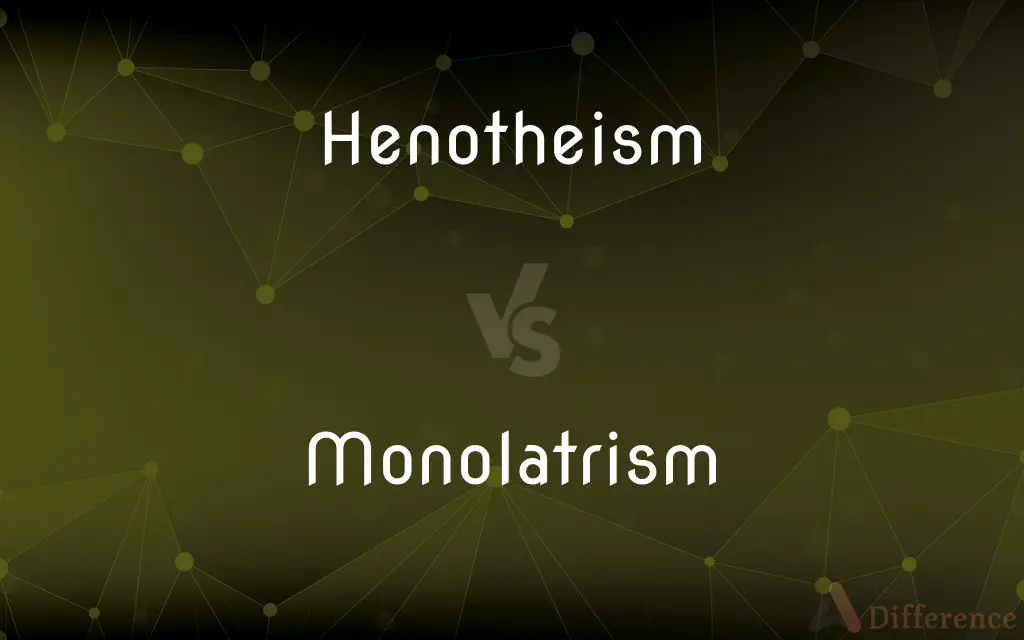Henotheism vs. Monolatrism — What's the Difference?

Difference Between Henotheism and Monolatrism
ADVERTISEMENT
Compare with Definitions
Henotheism
Henotheism (from Greek ἑνὸς θεοῦ (henos theou) 'of one god') is the worship of a single, supreme god while not denying the existence or possible existence of other lower deities. Friedrich Schelling (1775–1854) coined the word, and Friedrich Welcker (1784–1868) used it to depict primitive monotheism among ancient Greeks.Max Müller (1823–1900), a German philologist and orientalist, brought the term into wider usage in his scholarship on the Indian religions, particularly Hinduism whose scriptures mention and praise numerous deities as if they are one ultimate unitary divine essence.
Monolatrism
(religion) The worship of a single deity (while possibly believing in others).
Henotheism
Belief in the supremacy of one god without denying the existence of others.
Henotheism
Belief in or worship of one deity without denying the existence of other deities.
Henotheism
Primitive religion in which each of several divinities is regarded as independent, and is worshiped without reference to the rest.
ADVERTISEMENT
Share Your Discovery

Previous Comparison
Respondent vs. Suspect
Next Comparison
Gaoler vs. Turnkey














































